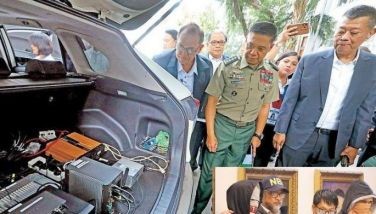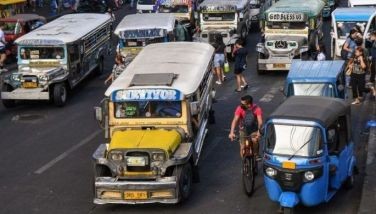‘P29/kilo rice giving false hope to poor’

MANILA, Philippines — By selling rice at P29 per kilo in Kadiwa outlets, the Department of Agriculture (DA) is giving false hope to the poor, the farmers’ group Philippine Chamber of Agriculture and Food Inc. (PCAFI) said yesterday.
Danilo Fausto, PCAFI president, said the move is not sustainable since the DA’s subsidy is pegged at P20 per kilo or at P220 million per day.
Fausto said in an interview with The STAR that the P29-per-kilo rice is more of a political move and was implemented possibly in preparation for President Marcos’ State of the Nation Address (SONA) this month.
“I’m afraid they might be creating false hope for the poor because I doubt the sustainability of the program,” Fausto said, referring to DA officials. “It is definitely a political move, maybe in preparation for the SONA. In terms of economic (aspect), it is impossible to sustain.”
Fausto noted that based on his conversation with National Food Authority Administrator Larry Lacson, the NFA can provide only the initial rice supply for the program.
“The NFA can only release the stocks that are about to expire so we are talking about those procured in April. The problem is, that is only 49,000 metric tons,” Fausto said.
According to Fausto, the DA needs at least 11,000 metric tons per day to support the P29/kilo rice for the vulnerable sectors – senior citizens, persons with disabilities, Pantawid Pamilyang Pilipino Program beneficiaries and solo parents.
“They bought this rice at a higher price between P45 and P50 per kilo and you will sell it at P29 (per kilo). More or less the subsidy is P20 per kilo. If you will provide P29 per kilo of rice to 30 percent income percentile, that is about 11,000 metric tons per day or 11 million kilos of rice per day. Multiply that by P20 per kilo, that’s the minimum subsidy per day,” Fausto said, referring to the P220-million losses for the government per day.
The DA started on Friday the simultaneous implementation of the large-scale trial of the P29 Rice program in 10 Kadiwa centers in Metro Manila and Bulacan.
Agriculture Secretary Francisco Tiu Laurel Jr. earlier said the program would also cover Visayas and Mindanao by late August or early September.
“Where will the money come from? The stock of the NFA is only 70,000 metric tons. If you are talking of 37,000 metric tons (of aging stocks), that is only good for two days. The NFA cannot release the stocks procured in May and June as, if there would be calamities, where will you get the supply?” Fausto explained.
Agriculture Assistant Secretary and spokesman Arnel de Mesa said the DA targets to expand the availability of the P29-per-kilo rice to five days from the current three days.
“From three days – Friday, Saturday, Sunday – eventually it will be increased to five days from Wednesday to Sunday. Monday and Tuesday will be the rest days and for the restocking of supplies,” De Mesa said.
He gave assurance that the implementation of the program would continue until the end of Marcos’ term in 2028.
De Mesa said the efforts to bring down the retail price of rice would further bring down inflation in the country. “We expect in the beginning of July, the inflation will go down because of the base effect of the P29-per-kilo price of rice.”
He added that at least 30 percent of the country’s population will benefit from the program.
The initial 10 Kadiwa stores that sell rice at P29 per kilo are at the Bureau of Plant Industry compound in Manila, Bureau of Animal Industry and National Irrigation Administration in Quezon City, Food Terminal Inc. in Taguig, Philippine Fiber Industry Development Authority in Las Piñas, Barangay 167 in Caloocan, Brgy. Fortune and BFCT in Marikina, Disiplina Village in Valenzuela and Brgy. Minuyan proper in San Jose del Monte, Bulacan.
- Latest
- Trending































